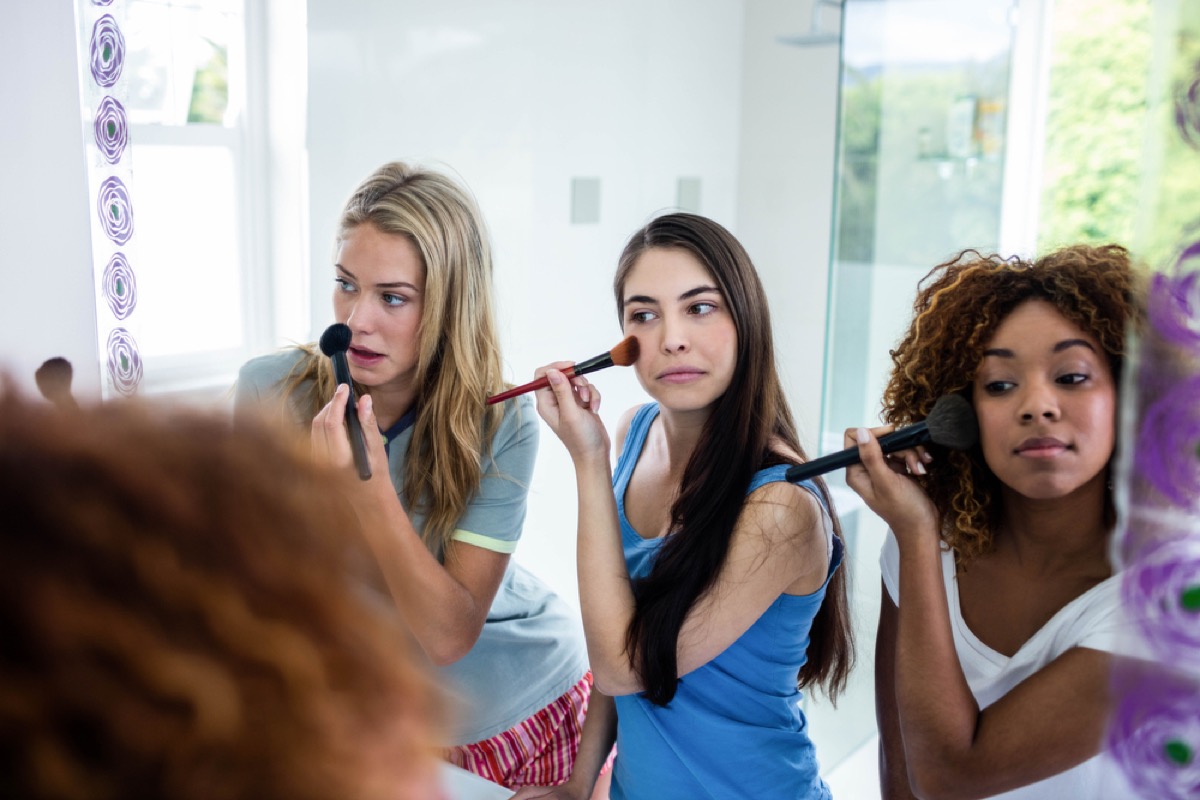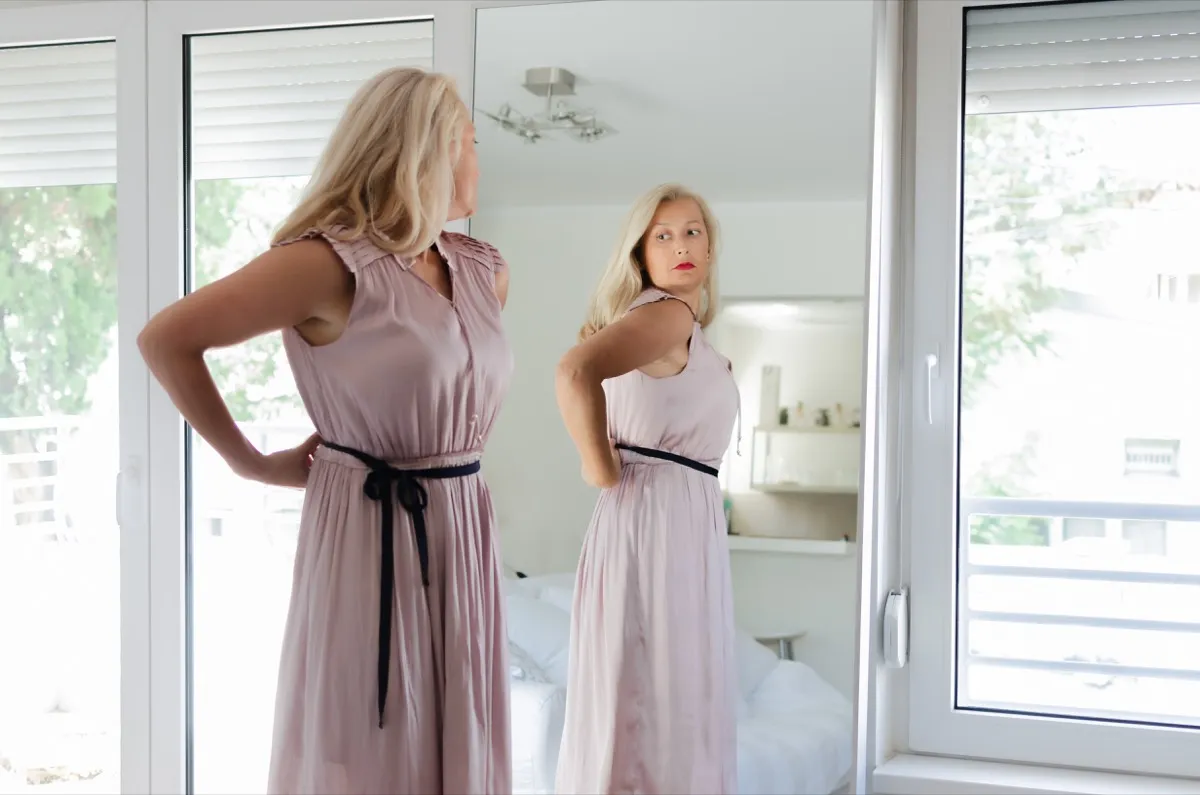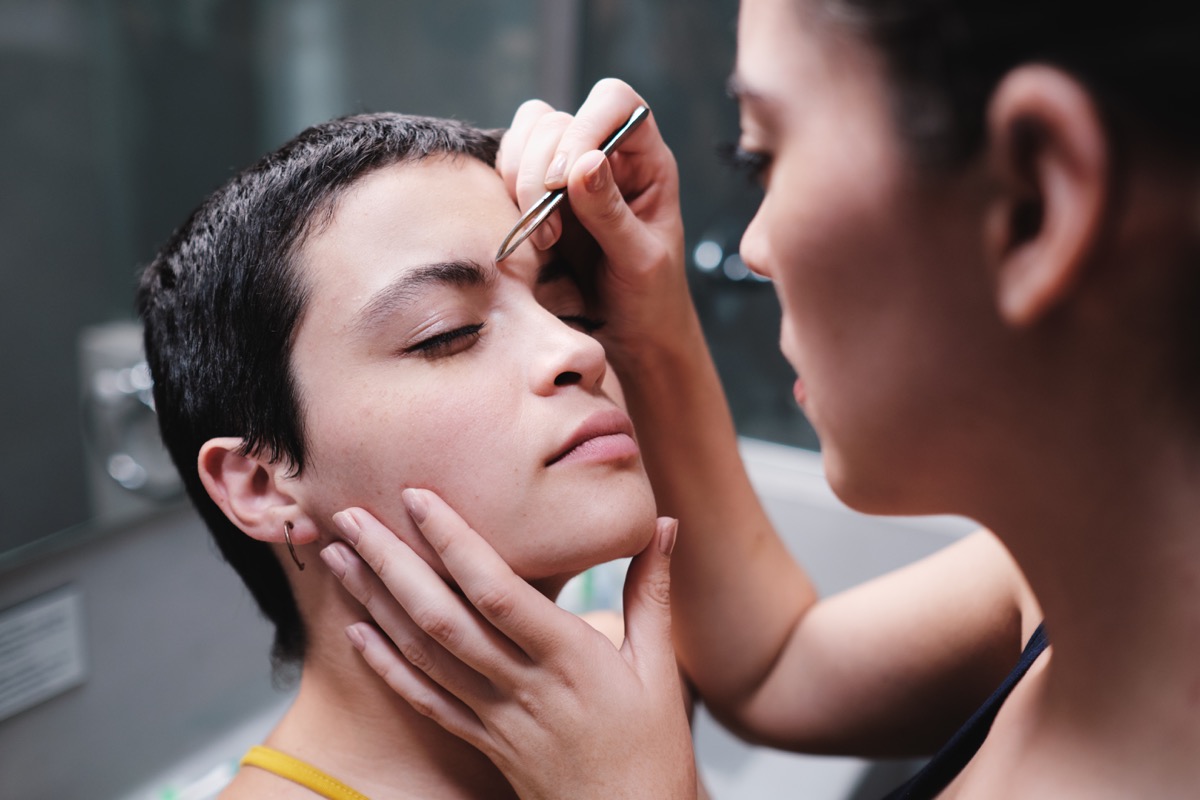Funny Ways to Say Your Pretty
A good compliment can go a long way. But after awhile, calling the apple of your eye "beautiful" or "sweet" starts to get pretty old. Back in the day, however, there was a wide range of kind, creative, eloquent remarks you could use to woo someone. So why not bring those back today? We've rounded up 23 old-fashioned compliments that deserve a place in our current vocabularies. Get ready to flatter someone so much that "the brightness of their cheek will shame the stars."

Most bugs aren't all that cute (and we doubt their ears are either), but this compliment sure is! In the late 19th century, the phrase "as cute as a bug's ear" was coined to call someone very cute, presumably on the basis that anything tiny or dainty is typically considered adorable.

You can thank William Shakespeare for this one. In Romeo and Juliet, Romeo says that the "brightness of her cheek would shame those stars," referring to his star-crossed lover Juliet. That's a pretty high compliment, considering how brightly a star shimmers in the sky.

This compliment was included in The New Academy of Complements, a book from the early 1700s that explored suitable sayings for "all persons, of what degree soever, of both sexes," according to the University of Michigan. The idea that your partner heals all that ails you is pretty sweet, if we do say so ourselves.

Looking for a good pick-up line from the 1700s that you can use during your next date night? Just say their "virtues have so strangely taken up [your] thoughts." You'll be telling your date that you think they're so good looking, you can't stop thinking about them.

Pippin began as a term used to describe a crisp tart apple. However, during the late middle ages, the word's meaning was broadened to describe a highly unique and admirable person. So, if someone calls you "a pippin," know they think very highly of you!

Want to let someone know how much they mean to you? Tell them you are "chucked all of a heap." This early 20th century phrase can be used to tell someone you're fascinated by or infatuated with them.

This phrase from The New Academy of Complements is one any successful man or woman would love to hear. It basically means you are so strong and powerful that you can accomplish anything you want, despite what "fate" has planned for you.

Nowadays, calling someone a "cow" isn't going to go over well… at all. However, according to Jeffrey Kacrick, author of The Word Museum: The Most Remarkable English Words Ever Forgotten, the forgotten term cowfyne is synonymous with "sweetheart." So give this one a shot (if you dare)!

In our opinions, this old 1700s compliment, also from The New Academy of Complements, takes the cake. After all, who wouldn't want to be told that someone would sooner doubt a prophecy than doubt them? That's some real trust right there!

If you feel like someone has a real way with words, make sure to pay them this old-fashioned compliment from The New Academy of Complements. Telling someone that the "grace of eloquence" is "seated on their lips" is the perfect way to express that you find them well-spoken and intelligent.

In the late 1800s, this old-fashioned compliment was actually used to called a woman attractive, having nothing to do with jam at all!

This old 1700s compliment from The New Academy of Complements was used to tell someone that they are so beautiful, their looks can basically control anyone on the face of the Earth. Who doesn't love a compliment with a side of magic?

This 1800s phrase, generally directed towards women, is pretty much what it sounds like. If you were told in the 19th century that you were the "prime article" in a room, someone was telling you that you were the most beautiful person around. D'aww!

Looking for a good way to tell you someone that you would do anything for them? This New Academy of Complements phrase is probably the most eloquent way you could put it.

Honesty is the best policy, and people in the 16th century knew that so well, they even had a phrase to refer to people who exemplified honesty and truthfulness: "truepenny and straight-fingered."

If writing a romantic poem for your lover is not exactly your thing, just send this compliment their way. At the very least, you'll be telling your partner that they're someone worth writing poems about. It's the thought that counts, right?

Everyone loves a good sunrise. And, sure, telling someone they're as beautiful as a sunrise is nice—but said in this old-fashioned way from The New Academy of Complements, it's even better.

If you take this phrase at face value, you're pretty much right on the nose. According to J. Redding Ware's Passing English of the Victorian Era, since bricks are considered one of the strongest materials out there, calling someone "bricky" back in the day meant you thought they were strong and fearless.

A simple "thank you" just doesn't cut it sometimes. And in those moments when you need a better way to tell someone you appreciate them, you can use this old 1700s phrase from The New Academy of Complements. It conveys that you're so thankful for them, you cannot even find the words to tell them how much.

Telling someone you believe in "love at first sight" is so cliché—so instead, express the same sentiment by using Shakespeare's well-worded compliment from The Tempest. It's just a more eloquent way of saying that you knew you loved someone the first time you laid eyes on them.

Looking for a good way to tell someone that you would do anything for them? Look no further than this 1700s compliment from The New Academy of Complements. It emphasizes that no matter what life throws your way, you will never leave your partner's side.

The sky's true beauty can't be captured—and that's basically what you're saying about your partner's looks with this compliment from the late 1600s, according toThe New Academy of Complements. This old phrase is a fancy way of saying that while you're as beautiful as the sky, your beauty has to be seen in person, for no photo could quite capture it in its fullest.

The highest compliment these days is telling someone they have good eyebrows. And apparently, having beautiful 'brows has been sought after for centuries. According to Kacrick's The Word Museum, calling some a "blepharon" years ago meant that they had good, strong eyebrows. And for more old terms to get reacquainted with, check out The Buzziest New Word Coined the Year You Were Born.
To discover more amazing secrets about living your best life, click here to follow us on Instagram!
Source: https://bestlifeonline.com/old-fashioned-compliments/
0 Response to "Funny Ways to Say Your Pretty"
Post a Comment